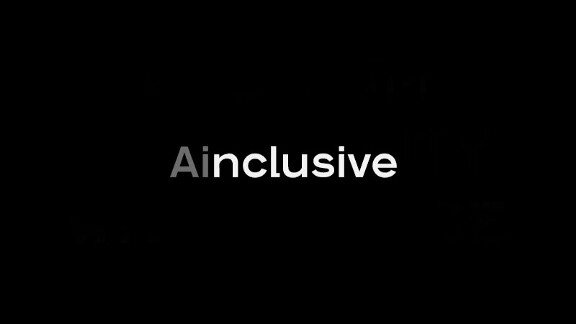Yes, there will be Robots
We’ll all be unemployed and watching Loose Women by lunchtime.
That’s not my unimaginative premonition of the future.
It’s just what some people might want to do in five years time when, according to this year’s feel-good report on Artificial Intelligence (AI), a fifth of jobs are predicted to be over-taken by computers. Artificial Intelligence is capable of outstanding breakthroughs but who knew it could force us to watch Loose Women?
It’s time for a re-brand.
Fight the fear
The fear of robots and artificial intelligence has long been a theme in pop culture but always in the realm of science fiction. We continue to fear it as it becomes reality and seeps into our societies like a Stranger Things nosebleed.
It’s on the rise and yes, there are potential risks if unregulated, but AI also presents an opportunity. As creatives, we have a chance to re-shape the way the AI story is told and re-engage the public.
How do we dispel the gloomy perceptions surrounding Artificial Intelligence? Maybe don’t use Arnold Schwarzenegger in the PR campaign.
We need to adopt a culture that starts to celebrate developments in this incredible technology. Because that’s what it is. We can forget this sometimes due to our instincts to shun the unknown. It’s easy to get comfortable in life, stick with what we know. Allow your sofa to swallow you up while you fall into a Loose Women stupor.
The elephant in the room, the big-bad-wolf, the wicked witch of the west. AI’s that shadowy thing that looms just out of view like the Daleks do with the Doctor.
We’d much rather look the other way, stick our fingers in our ears and pretend it’s not there.
For years it’s been considered this dark surveillance tool and it hasn’t always covered itself in shiny, clunky, robotic glory.
Algorithms that drive AI can be unregulated, unchecked and can, therefore, be used in very negative ways such as controlling our data.
Facebook recently took the hit but the public backlash from those invasions of privacy suggests that history can’t afford to repeat itself. These days Mark Zuckerberg cuts the figure of a man who lost his bookmark when the public wrestled his beloved facebook out of his hands (the classic movie scene where the unpopular high-school kid is unassumingly carrying his books back to his locker). Now he’s desperately trying to remember what page he was on before all the commotion in the corridor.
AI is still perceived as a company risk (it’s even listed as a business risk at Google) so it’s fundamental that businesses highlight how Artificial Intelligence can solve business problems.
Let’s make it something to be championed and start by looking at the ways AI can be ethical. Collect data but tell your consumers why you’re collecting their data.
AI needs to be inclusive
Everyone needs to feel a part of the revolution.
With this, no doubt on his mind, last month’s London Tech Week saw Sadiq Khan address the need for AI to be trusted by the general public and be made inclusive: “It’s crucial that we ensure we secure, rather than undermine, the confidence of local citizens”.
At the same event last year he had acknowledged the scale of AI development in the UK, citing it as the “capital” of Artificial Intelligence for Europe. London had double the amount of AI companies as the second and third cities (Paris and Berlin).
The Mayor called for the need for diversity in this sector, the importance of engagement from all classes essential, as in ten years from now the prediction is that 90% of jobs in the capital will be tech-based.
Governments need to do their bit — ensure training initiatives are in place to help workers from all classes transition into new AI-based roles, but creatives are equally important in leading the way. We can inform and enlighten the public. Designers — create slogans, campaigns that energise. Writers — tell stories that simplify the situation but also stimulate.
Branding-wise, it’s all about implementing a message of trusting AI in the future. We can’t be passive to the inevitability of this new era. The more we can educate the public on not just AI, but examples of ethical AI then the more equipped people are going to feel when we’re surrounded by it.
Shift the discourse
Be bold with your story-telling. Choose to get back to writing and sharing positive stories — it’s easy to be pessimistic when we live in a world seemingly obsessed with cynical journalism (the influence of dystopic stories in the western world also can’t be overlooked). Society is a sharing hub these days (over-sharing) so let’s make sure we’re sharing the good stuff.
Promote AI being used for social good. Mindstrong Health is a great example of a company utilising the technology era to great effect, while last week Facebook launched a new centre designed to tackle harmful content which could create more than 500 jobs by the end of the year.
AI is also being used to help children suffering from Autism. But these reports aren’t cutting through the noise in the same way that alarmist articles like this are.
Opportunity beckons
Life promises to be easier to navigate when AI properly takes control.
Yes, there will be robots, probably quite shiny ones too, but who knows, they might make a mean cup of tea and then I’m sure the British public will be all for it.
Robots that make cups of tea? Now there’s a branding opportunity…
Written for opx.studio
Article first published on OPX Medium

